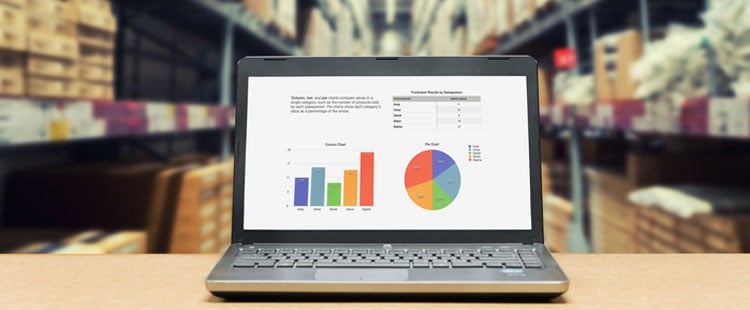
Have you ever received a bill that exceeded the quote you were given for an international shipment?
When a freight bill doesn’t match the quote, it can be painful to determine what happened. It’s important to realize a quote is typically based on the information you’ve provided the forwarder. If the information has omissions or inaccuracies, such as inaccurate weight and dimensions, then your bill is going to be different from your quote.
Incorrect or Missing Information
The most common cause of bill discrepancies is incorrect weight or dimensions.
This is the case for the company who says their shipment is 2,000 pounds, but at pick-up find it’s actually 4,500 pounds. The freight forwarder is then faced with a costly, time-sensitive dilemma. Do they ask the agent to stop, pick up the phone and say, “Hey, this shipment’s X amount of pounds or kilos heavier, and the rate’s going to change,” or do they let it move because there’s going to be a costly 24-hour delay? Worse yet, playing phone tag for too long could result in waiting for charges from the trucking company, or a truck turned away could incur unexpected and costly dry run charges.

In this scenario, the freight usually just moves.
When the company gets an invoice for an amount different than quoted, they’re not happy. However, it can create a slippery slope if they require authorization prior to pick-up—how big a discrepancy does the customer want to know about? If the price increase is the result of a 10-pound difference, do they really want to delay a shipment 24-48 hours and possibly incur extra charges?
Other times, a customer might say they have three crates for shipping, each weighing 500 kilos and measuring 36” x 36” x 36”. When the truck arrives, the forwarder may find out it’s longer or wider than quoted. This changes the chargeable weight and, thus, the bill.
Similarly, if a shipment arrives at a US port and the correct documents aren’t provided or the classification information isn’t correct, the Customs entry can be delayed resulting in demurrage.
Rate quotes are given based on the information provided, and they can change based on the actual size of the shipment when it’s picked up. When crucial information is simply missing, costly delays and fines may occur resulting in unexpected charges on the final bill.
Using One Provider for Customs Clearance & Freight Forwarding
Using your freight forwarder as a Customs broker gives you a single organization responsible for overseeing your supply chain, so there’s more accountability and a streamlined process.
If you use different companies for forwarding and Customs clearance, it’s the forwarder’s obligation to notify the broker and turn over documents to them prior to arrival. When the appropriate paperwork is received by the broker, it’s then up to the broker to clear the goods. For example, if the terms of the shipment are ex-works (EXW) and to the consignee’s door, then the broker must advise the forwarder when the freight is Customs cleared and ready for pick-up.
Communication mishaps can result in demurrage when the forwarder and Customs broker are different parties. It’s critical that you can trust both companies and have a standard operating procedure (SOP) in place. Otherwise, you could have an “us versus them” situation when problems arise.
Overcoming Billing Headaches
There are several practices that will help you avoid billing issues like these:
- Know your freight. Know how your freight is packaged and what it requires. Know how your supplier treats the goods. Communicate any special requirements.
- Verify your shipment’s weight and dimensions. Understand how they are measured.
- Do your homework. Know your Incoterms.
- Adhere to an SOP, and provide the forwarder and broker with an updated copy.
- Use the same forwarder and broker.
If you’ve encountered billing issues in the past and want to close the gap between quotes and actual invoices, start by taking a look at your process and communication with your logistics partners. Are you telling them everything they need to know when you advise of shipments? Is the information you provide accurate? Consider consolidating your freight forwarding and brokerage with one provider to cut down on unnecessary hiccups in the supply chain. These steps will go a long way toward preventing billing headaches, and result in a much smoother process for everyone involved.


